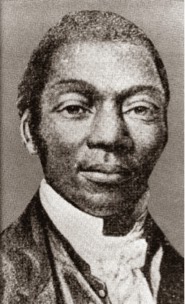Journey through Slavery part 4 - Judgement Day
Today Pierce Butler is
commemorates as one of the founding fathers. He was born on July 11th
in
1744. He was a soldier, planter and statesman. He was the representative for
South Carolina during the Continental Congress, Constituitonal Convention and
for the US Senate. He publicly spoke out in favor of slavery for both personal
and political reasons. He also introduced the Fugitive Slave Clause during the
Constitutional Convention. The Butler Island Plantation was one of the largest
rice plantations in the South. More than 500 enslaved African Americans worked
the plantations which fundamentally made the Butler family one of the riches in
the United States. During this time it was thought that the demoncracy was in
the hands of the white men, slave owners of course. More money was being spent
on slavery than any other investment in the Unites states. There were over two
million enslaved blacks and were worth approximately a billion dollars in
total. Most of the cotton, worldwide, was being proeduced and exported from the
south. This required labor, hard labor, all done by the slaves. Cotton production
was the basis and foundation of ship building, shipping, and even factories,
etc.
 |
| Pierce Butler |
Harriet Ann Jacobs was born on
February 11th in 1813, in North Carolina. She underwent the
 |
| Harriet Ann Jacobs |
 |
| David Walker |
During this crucial time period in
history free blacks were a great threat to slavery. There was a total of
182,000 free blacks living in the South and a total of 137,000 living in the
north. Not only was slavery a growing issue but so was abolitionism, at least
to most of the white population it was. Slavery in the South had a
unforgettable impact on every black person in the country where ever it was
that they were. Even if they weren’t enslaved, most free blacks were greatly
discriminated but also segregated. In the north, segregation was a major issue
in schools and even in churches that claimed to support the abolitionist
movement. Laws even prohibited intermarriage between blacks and whites. David
Walker was born on September 27, 1797 in Boston, Massachusetts. He was an
outspoken African America, but had never been enslaved, unlike his own father. In
1829 he started his own private war, which was fought to condemn both racism
and its foundation, slavery. He fought in favor of all African Americans and
their right to be free and treated as citizens of the United States.
PRIMARY SOURCE: http://www.yale.edu/glc/harriet/15.htm

No comments:
Post a Comment